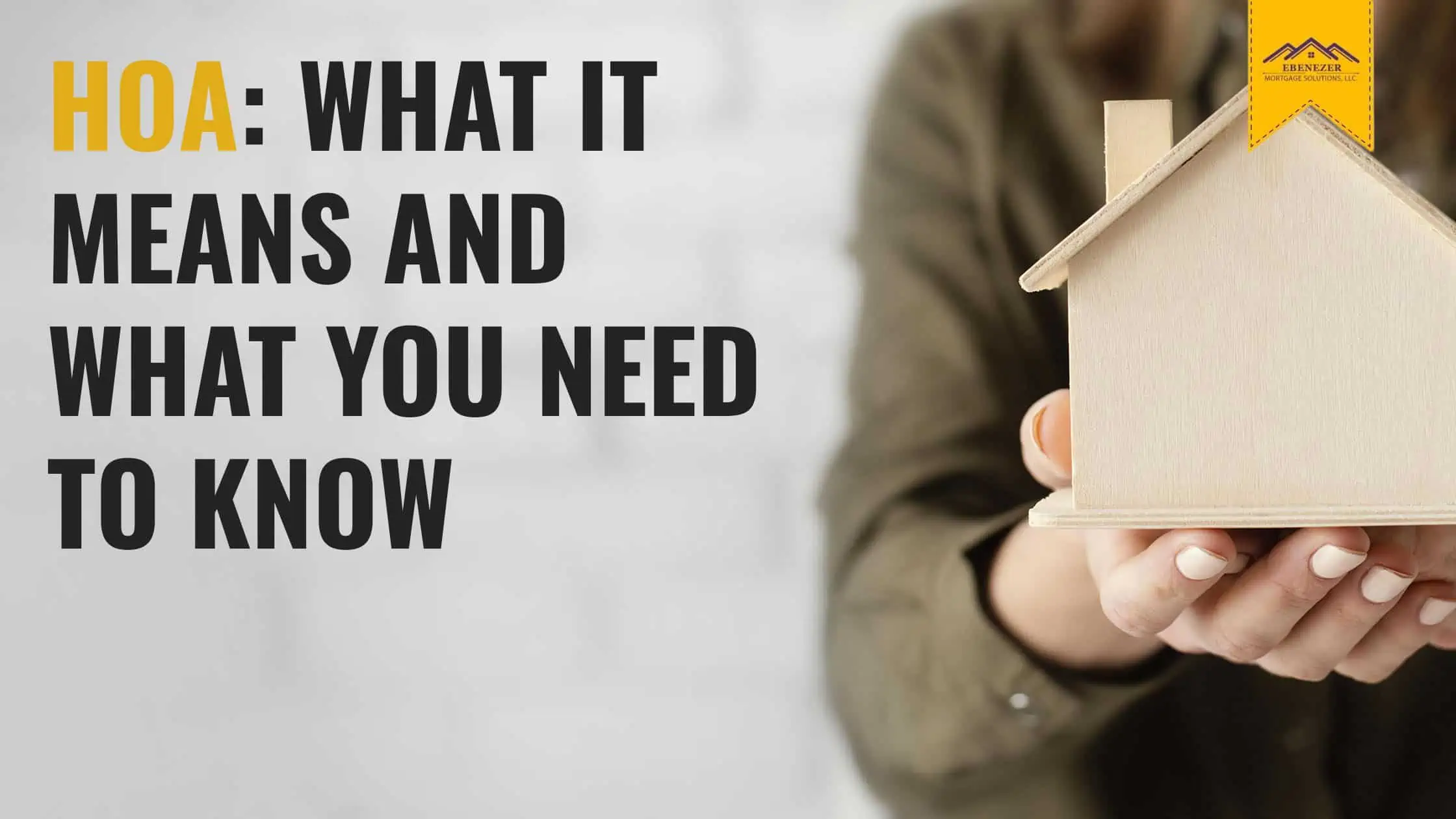Your Most Trusted Partner in Home Purchase Loans & Refinance Loans
Open Hours: Mon. - Fri., 9:00 a.m. - 6:00 p.m.

Understanding Homeowners Associations (HOAs) is crucial for any homeowner or potential buyer. From their roles, functions, fee structures, to the impact of non-compliance, this article provides an in-depth analysis of HOAs.
It further explores the benefits and drawbacks of living in an HOA community, preparing you to make informed decisions about home buying.
A Homeowners Association (HOA) is a private organization within a planned community that sets and enforces rules for the properties and their residents. These HOA rules are designed to maintain a certain standard within the community, ensuring that the value of properties does not decrease.
The HOA is managed by a board, which is typically composed of elected members from within the community. As part of a property owners association, homeowners are required to pay dues, which are used for the upkeep and enhancement of common areas.
Understanding what a homeowner association (HOA) is can help residents and potential buyers make informed decisions about their housing options and obligations. The HOA plays a significant role in shaping the community's aesthetics, harmony, and property value preservation.
Understanding the operations of Homeowner Associations (HOAs) is crucial for any homeowner within such a community. These organizations have a set structure and guidelines that govern their actions and decisions.
Let's now turn our attention to discussing the primary purpose of a Homeowners Association and how it executes its functions.
The primary purpose of a homeowners association (HOA) is to manage, maintain, and regulate a community's common areas, ensuring a certain level of uniformity and adherence to rules for the benefit of all residents.
As an integral part of the HOA community, they oversee the enforcement of community rules. These rules vary and play a vital role in preserving the aesthetic appeal and functionality of common spaces.
HOA board members, elected by community residents, are charged with making important decisions about community management. They also handle the resolution of any disputes that may arise concerning the HOA's rules or actions.
This system allows for a well-managed, harmonious community that preserves property values and promotes resident satisfaction.

Understanding the distinctions between the HOA Board and HOA Management is vital for homeowners. These two entities play separate yet interconnected roles in the operation and governance of a Homeowners Association.
Navigating through the complexities of Homeowners Associations, it's essential to distinguish between the roles of the HOA Board and HOA Management. The HOA board, composed of elected board members, is responsible for establishing the HOA's rules and regulations. These individuals are homeowners themselves; they work voluntarily to protect the interests of the community.
On the other hand, an HOA management company is typically a hired third party. Their primary role is to enforce the rules established by the HOA board. They handle the day-to-day operations, including maintenance, financial management, and dispute resolution.
While both the HOA Board and HOA Management aim to serve the community, their functions in the association differ significantly in terms of rule establishment and enforcement. The board of directors, composed of property owners, typically sets the rules and policies for community associations. On the other hand, HOA management, which may be contracted management services, is responsible for enforcing these rules and handling the day-to-day operations.
Understanding the dichotomy between these two entities is essential for smooth and effective functioning of any homeowners association. It ensures that everyone involved knows their role and contributes to the betterment of the community.
In the realm of homeowners' associations, HOA fees encompass a range of services and amenities designed to enhance communal living and improve property values. These fees, often assessed as monthly HOA fees, contribute to the collective betterment of the community and the reserve fund, which is crucial for long-term maintenance and unexpected expenses.
When you pay HOA fees, you're investing in the upkeep and improvement of shared spaces like parks, swimming pools, and gyms, as well as essential services like maintenance, landscaping, and security. These fees also typically cover costs associated with garbage collection, snow removal, and certain utilities, ensuring adherence to the community's rules and standards.
It's important to work with a knowledgeable real estate agent who can help you understand the common HOA rules and financial obligations, including the Fair Housing Act implications, of living in an HOA community. The specific services your fees cover will be outlined in the association's governing documents, which should be reviewed thoroughly to avoid any unexpected expenses.
Failure to fulfill your financial obligations by not paying your HOA fees can lead to serious repercussions, which range from penalties to foreclosure. This is because HOA homeowners are legally bound to pay these fees to the HOA boards. The consequences of non-payment are typically outlined in your HOA agreement and can escalate rapidly.
Here are some potential outcomes:
Paying HOA fees promptly is essential to avoid these pitfalls.
Living in an HOA community presents both benefits and drawbacks.
While HOAs often carry an additional financial burden, they also offer several significant advantages, such as enhanced community living, increased property values, and access to shared amenities.
Moreover, living in an HOA community often means that property values are well-maintained. The HOA enforces rules and regulations that ensure the appearance and condition of the neighborhood is maintained, which can help preserve property values over time.
Although HOAs provide several benefits, they also come with certain drawbacks that potential homeowners should carefully consider. such as their monthly or annual fees.
One significant disadvantage involves the homeowners association rules, often known as HOA rules. These rules may impose restrictions on aspects such as structural restrictions or pet ownership, which can limit personal freedoms.
Another potential downside is the financial burden of annual fees, which can be substantial and increase over time. In addition, special assessments for unexpected expenses or major projects can result in additional costs. These financial obligations may significantly impact a homeowner's budget.
Therefore, understanding the potential disadvantage of an HOA community is crucial before making a decision to live in such environments.
Navigating the housing market, especially when dealing with Homeowner Associations (HOAs), can seem daunting. But with Ebenezer Mortgage Solutions at your side, it becomes a streamlined and manageable journey. Our experienced mortgage brokers are well-versed in the intricacies of HOA communities and can guide you through every step, ensuring you make informed decisions.
At Ebenezer Mortgage Solutions, we pride ourselves on providing personalized mortgage advice tailored to your unique needs. Whether it's understanding HOA fees, exploring financing options, or calculating your mortgage payment, we're here to simplify the process. Our commitment to transparent and efficient service means you can focus on finding your dream home, while we handle the complexities of mortgage planning and approval.
Start your homeownership journey with confidence. Contact Ebenezer Mortgage Solutions today at 813.284.4027, and let's make your home-buying experience a smooth and successful one.
Even though the housing market can seem daunting, finding the right mortgage broker can simplify the process, making you ready to buy a home.
In a homeowner's financial planning, a common question that often arises is whether Homeowners Association (HOA) fees are tax-deductible.
Delving into the realm of homeowners' rights versus HOA regulations, a common inquiry pertains to whether a homeowner association can prohibit the installation of solar panels on a resident's property. This is a complex issue involving covenants, conditions, and restrictions (CC&R), as well as state regulations.
While an HOA enforces rules within its jurisdiction, the property owner's right to install solar panels often depends on specific state laws. Some states have 'solar access laws' that limit the ability of HOAs to restrict solar panel installations.
Understanding who governs homeowners' associations (HOAs) necessitates a look at both the internal structure of these organizations and the external legal framework within which they operate.
The primary governing body is the HOAs board, elected by the community members. The board is primarily responsible for enforcing rules and making decisions on behalf of the community.
Community association research indicates the critical role of the board in shaping the community's living standards and policies.
The legal authority of HOAs is derived from state law, which outlines their powers and responsibilities. This legal framework influences how HOAs can operate and the extent to which they can enforce their rules.
Understanding these aspects can greatly assist homeowners in navigating their relationship with their HOA.
In conclusion, understanding the workings of a Homeowners Association (HOA) is crucial for any potential homeowner.
It plays a significant role in managing, maintaining, and enhancing the community.
While it has its advantages, such as community upkeep and increased property values, it also has downsides like high fees and strict regulations.
Therefore, potential homeowners need to thoroughly consider the implications of an HOA before purchasing a home in such a community.
